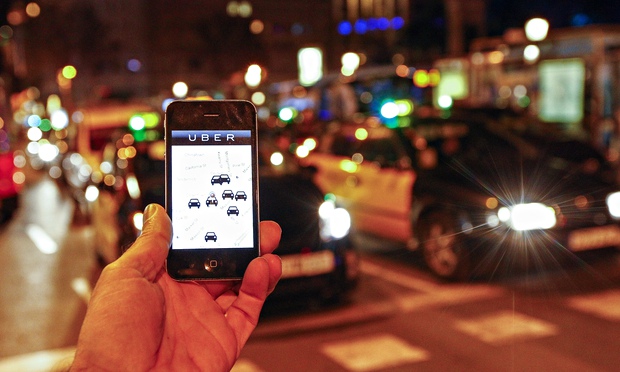I wrote this back on January 5, 2014; that’s over a year ago. I am by no means an intelligent person, but I realized the potential value of Uber even before I ever actually sat foot in an Uber. (My wife and I started taking them at the tail end of living in Minneapolis, so maybe June 2014. Now we live in Texas, have one car, probably won’t have two cars anytime soon because of my wife’s new job, and use Uber literally for everything.)
I would probably sell my soul to Uber in a lot of ways, because it makes everything about navigating an area quickly (and about not drinking and driving) pretty easy. The taxi industry was ripe for “disruption” (generally a terrible term), and Uber/Lyft/etc. did that — even if there are concerns it’s potentially a racist service.
Uber’s new push, money-wise, is upon us — and it’s the same push that Google, Facebook, and credit card companies have been using to go revenue-wild for two decades. Namely: user data. It’s outlined well here in Forbes, especially this paragraph:
It should not be news to anyone that Visa, Mastercard and Amex have set up entire divisions of their company whose sole mission is to sell transactional data to any business that will pay, currently yielding $100’s of Millions mostly to Private Equity, Hedge Funds and Investment Banks, and projected to be $1 Billion within 5 years. The difference is that they remove all Personally Identifiable Information (PII) and only sell aggregate information – in their eyes “you” are not you. Uber’s advantage is that Uber users will, in a heartbeat and with the click of a button, trade their PII for extra points and/or miles – that’s a massive win. Even if you don’t hand over your PII Uber still has the same aggregate non-PII data opportunity.
Yep.
This is all starting because of an Uber deal with Starwood, which will probably become an Uber deal with a variety of other companies and providers.
But think about it like this: if you use Uber all the time, right, then Uber knows where you live, where you go most of the time, the airports and hotel chains you use, what you pay for services, when you’re good with Surge vs. when you’re not, etc. Basically, every time you go from “Point A” to “Point B,” A and B both represent data points that Uber could sell, someone could buy, and a marketing/sales team could think (or be right to think) that they have a leg-up somewhere now. In a nutshell, that’s business.
People go crazy and get uber-worried (HA, puns!) about this kind of stuff, but … first of all, it’s very basic business practice that companies with huge user bases and a lot of data point inputs go and sell that data or use it to keep you around longer. Just accept that. That’s a way of the world. Secondly, sometimes violating our privacy is good. Not everything is always black-and-white.
Like I said, I love Uber. I take it everywhere nowadays. Let’s say Uber started sending me messages like “Hey, we see you have a flight to DFW in 2 hours. Want to call a car now?” I would go nuts — in a good way. Instead of thinking about getting to an airport, which can be stressful for a lot of people, imagine you could swipe 2 hours before and have a car in 5 minutes? That’s a small thing, but tied to Big Data — and that’s a big deal. Because at base, shouldn’t the central idea of “Big Data” as a concept be “Making our lives easier through analysis of patterns?”
I would think so, right?

Good